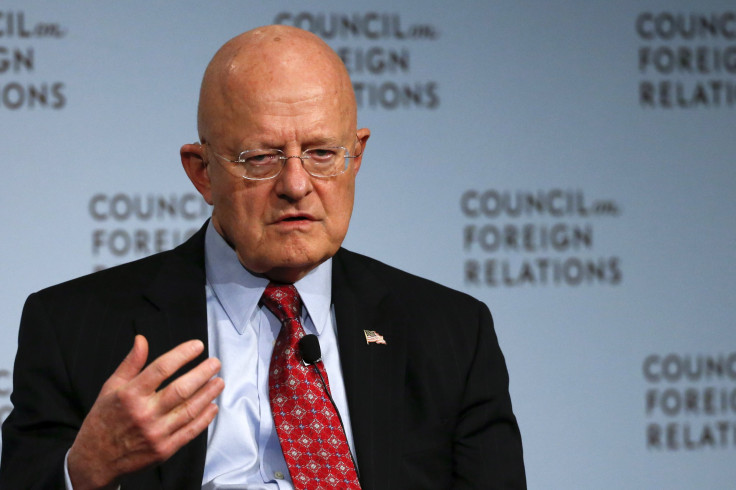US Spy Chief Says 40 Americans Who Returned From Syria Don't Pose Security Threat

James Clapper, the director of national intelligence, said on Monday that about 40 Americans had returned to the U.S. from Syria, out of the nearly 180 who had traveled to conflict-ridden nation. Clapper added that not all the Americans who had gone to Syria had joined militants like the Islamic State group, and none of those who had returned currently pose a threat to American security.
The U.S. and its Western allies believe that over 20,000 foreign fighters from over 90 countries have gone to Syria, according to a Reuters report. Many of them have reportedly become members of militant groups such as ISIS, which has captured large swathes of territory in Syria and Iraq.
U.S. officials have expressed concerns over these radicalized Americans, who have been trained abroad, returning home to carry out attacks. Clapper said he was not aware of the returning citizens being involved in any such plots, and because they had not engage in violent acts abroad, they had the “privilege as American citizens” to return to the U.S.
“If they come back, and they are not involved in plotting, or don’t have nefarious purpose, that’s their right and privilege as an American citizen to come back,” Clapper reportedly told a forum at the Council of Foreign Relations, adding that the current global situation is the most challenging one the U.S. has faced in his 50-year career in intelligence.
“I’ve been in one capacity or another in the intel business for 52 years, and I don’t remember a time when we have been beset by more crises and challenges around the world and the diversity of these crises and challenges than we have today,” Clapper said, according to Time magazine.
However, he added that there was reason to be hopeful in the fight against ISIS, pointing out that its ongoing brutality meant that donations and support for the militant group had declined dramatically.
"I think there is change afoot in the Mideast," he reportedly said. "It's not going to occur overnight. But I think these brutalities, publicized brutalities by ISIL [ISIS], beheadings, immolation and the like, have really had a galvanizing effect even in the Mideast."
The ongoing conflict in Syria has become one of the worst humanitarian crises in recent history, with the United Nations estimating that 12 million people have been displaced since the civil war broke out in 2011. Nearly 200,000 people have also died since the start of the conflict.
© Copyright IBTimes 2024. All rights reserved.





















